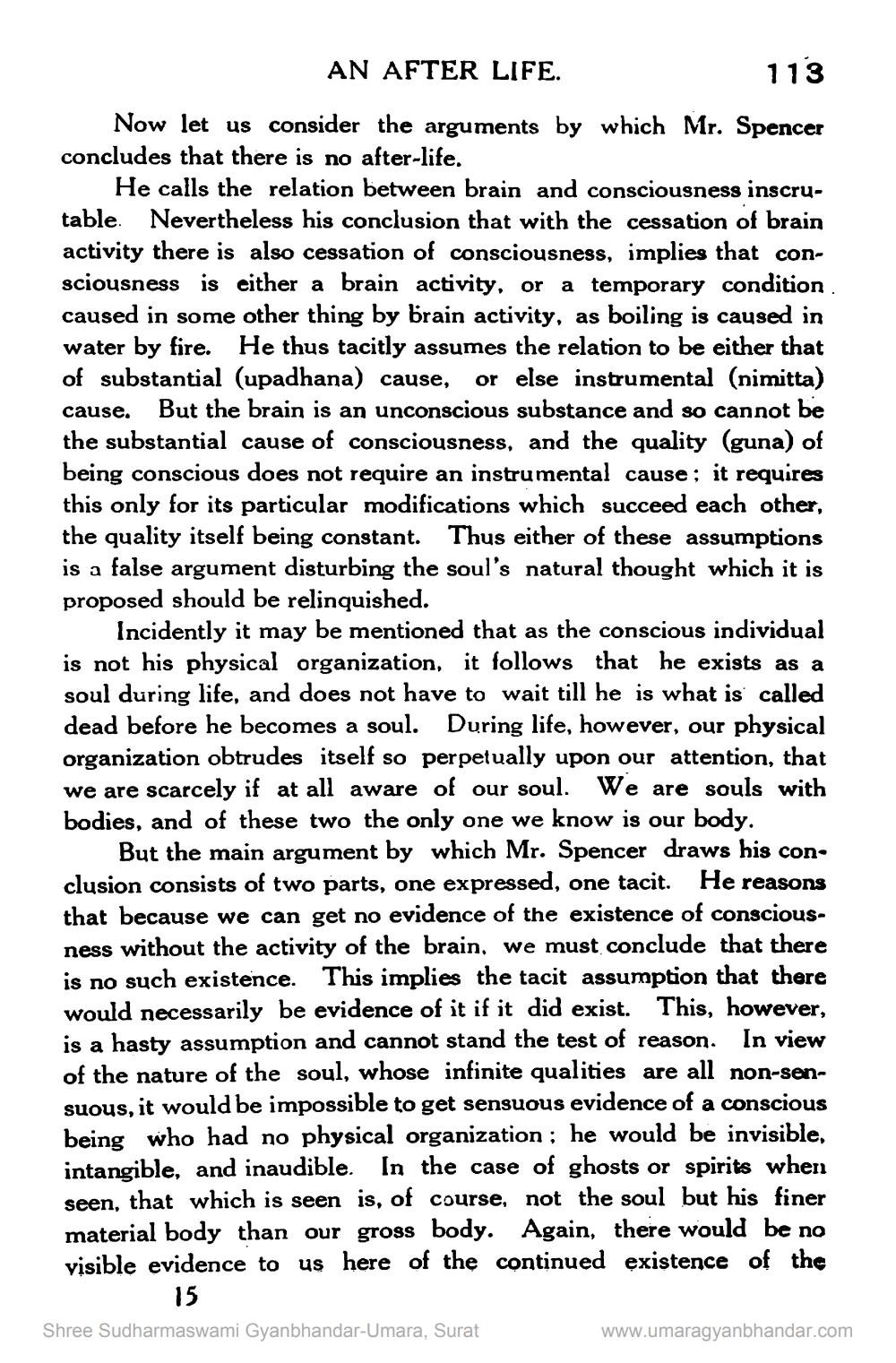________________
AN AFTER LIFE.
113
Now let us consider the arguments by which Mr. Spencer concludes that there is no after-life.
He calls the relation between brain and consciousness inscrutable. Nevertheless his conclusion that with the cessation of brain activity there is also cessation of consciousness, implies that consciousness is either a brain activity, or a temporary condition caused in some other thing by brain activity, as boiling is caused in water by fire. He thus tacitly assumes the relation to be either that of substantial (upadhana) cause, or else instrumental (nimitta) cause. But the brain is an unconscious substance and so cannot be the substantial cause of consciousness, and the quality (guna) of being conscious does not require an instrumental cause ; it requires this only for its particular modifications which succeed each other, the quality itself being constant. Thus either of these assumptions is a false argument disturbing the soul's natural thought which it is proposed should be relinquished.
Incidently it may be mentioned that as the conscious individual is not his physical organization, it follows that he exists as a soul during life, and does not have to wait till he is what is called dead before he becomes a soul. During life, however, our physical organization obtrudes itself so perpetually upon our attention, that we are scarcely if at all aware of our soul. We are souls with bodies, and of these two the only one we know is our body.
But the main argument by which Mr. Spencer draws his conclusion consists of two parts, one expressed, one tacit. He reasons that because we can get no evidence of the existence of consciousness without the activity of the brain, we must conclude that there is no such existence. This implies the tacit assumption that there would necessarily be evidence of it if it did exist. This, however, is a hasty assumption and cannot stand the test of reason. In view of the nature of the soul, whose infinite qualities are all non-sensuous, it would be impossible to get sensuous evidence of a conscious being who had no physical organization ; he would be invisible, intangible, and inaudible. In the case of ghosts or spirits when seen, that which is seen is, of course, not the soul but his finer material body than our gross body. Again, there would be no visible evidence to us here of the continued existence of the
15 Shree Sudharmaswami Gyanbhandar-Umara, Surat
www.umaragyanbhandar.com




